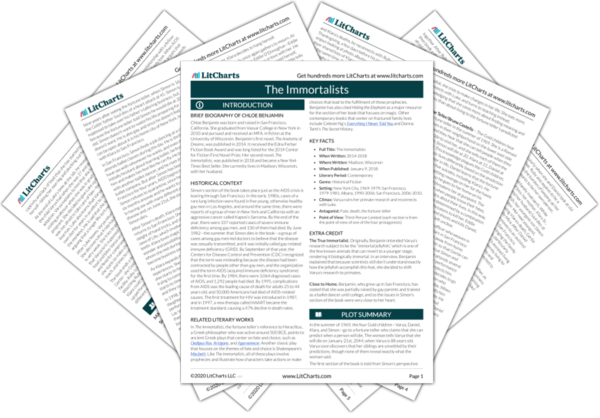Frida, one of the monkeys in Varya’s primate research, symbolizes the idea that a longer, empty life is less meaningful than a shorter, fuller one. Frida is part of a study in which a group of monkeys eat a severely restricted diet to see if this lengthens their life. While Frida does live a biologically healthier life, it quickly becomes clear that she is miserable in captivity. She bites herself, plucks out her fur, and towards the end of the book, starts to chew her own arm. Thus, just because she is theoretically able to live a much longer life, the novel suggests that it comes at the expense of her happiness. In this way, Frida also becomes a stand-in for Varya, because Varya makes the exact same choices: she chooses to restrict her diet and cut herself off from the world in the hopes that it will allow her to live longer, not realizing that it makes her miserable, too.
Yet the end of Frida’s arc is crucially different from Varya’s. Seeing Frida so miserable, Varya gives her much more food than she is supposed to have. Thus, Varya admits that the life these monkeys live might be longer, but it’s horrible. Varya, on the other hand, starts to make changes in her own life after this incident—she reconnects with her son Luke, starts to eat more, and is less obsessive about germs. These changes may mean that Varya doesn’t live to 88 as the fortune teller predicted, but the years that she has left will be more meaningful.
Frida Quotes in The Immortalists
“Because I’m sad,” says Luke, thickly. “Because to see you like this breaks my fucking heart. You cleared the decks: you had no husband, no kids. You could have done anything. But you’re just like your monkeys, locked up and underfed. The point is that you have to live a lesser life in order to live a longer one. Don’t you see that? The point is that you’re willing to make that bargain, you have made that bargain, but to what end? At what cost?”










